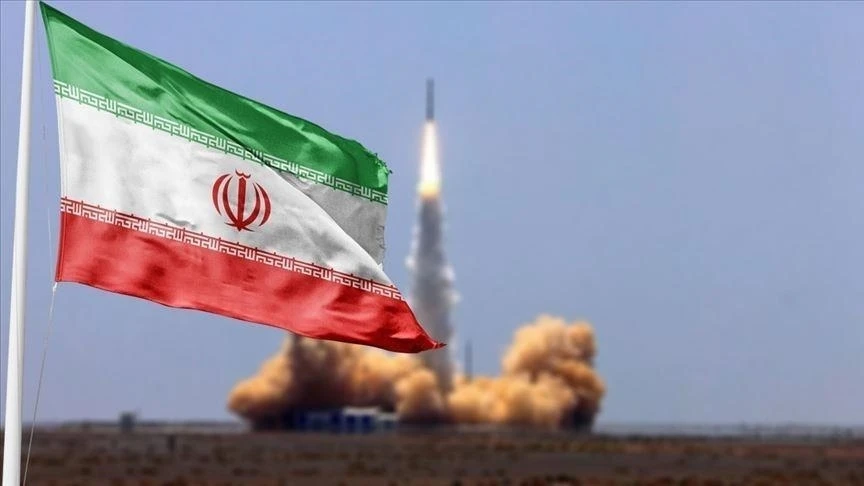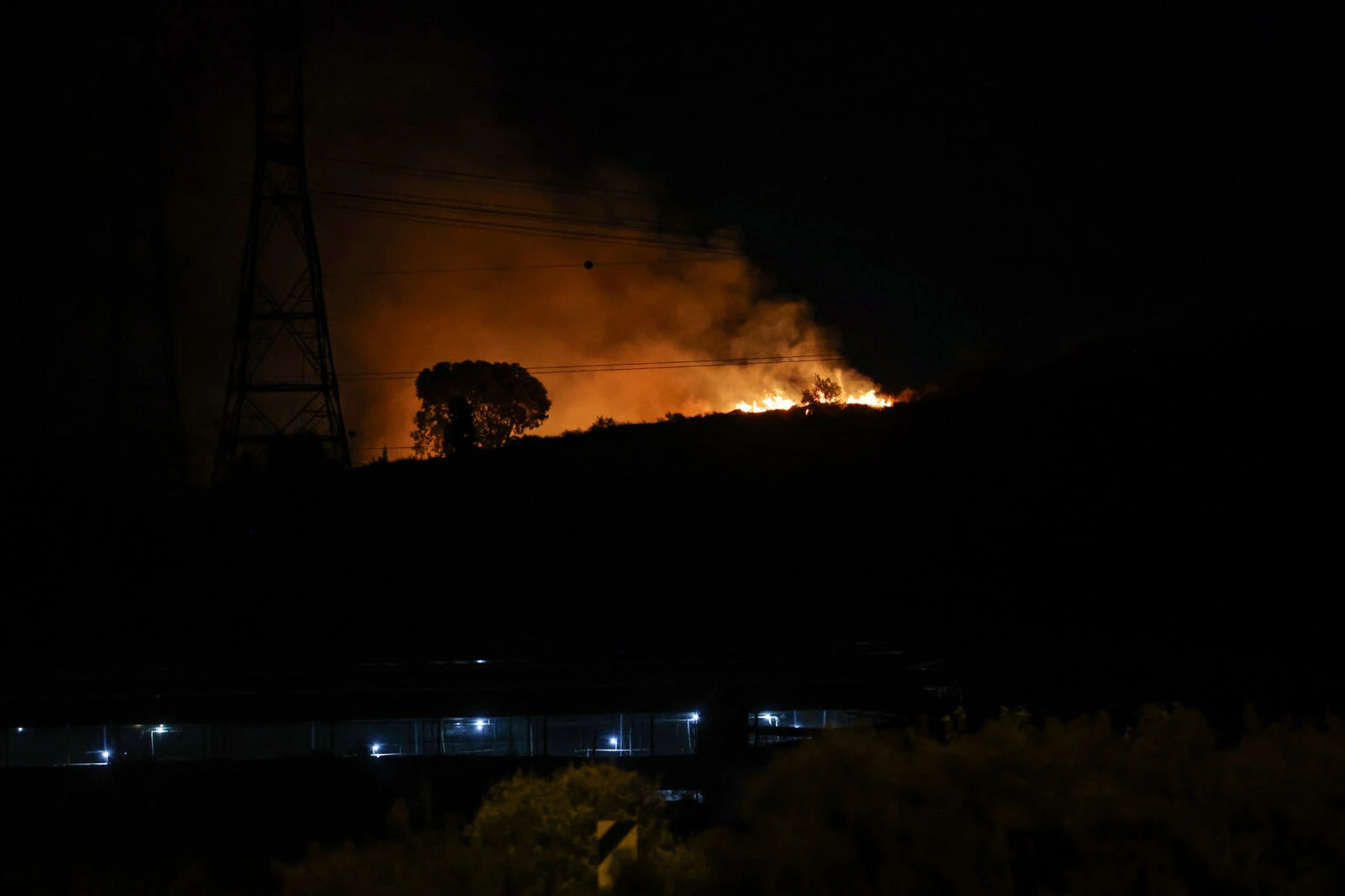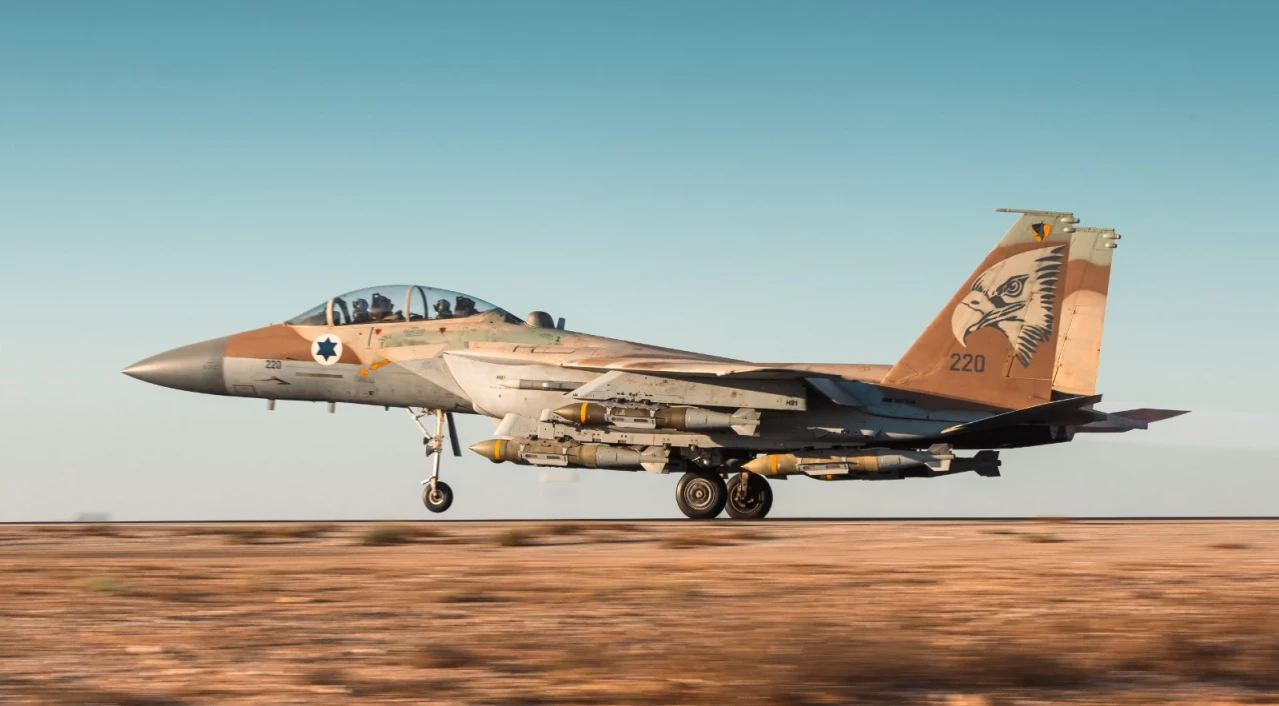Iranian hardliners push for nuclear weapons amid looming Israeli retaliation
 Iranian hardliners push for a nuclear doctrine revision to pursue atomic weapons after a missile barrage targeted Israel. (AA Photo)
Iranian hardliners push for a nuclear doctrine revision to pursue atomic weapons after a missile barrage targeted Israel. (AA Photo)
With the prospect of Israeli retaliation for Iran’s recent missile attacks looming, some Iranian hardliners are pushing for a revision of the country’s nuclear doctrine to pursue atomic weapons.
Israel has vowed to launch a “deadly, precise, and surprising” attack in response to Iran’s unprecedented missile barrage on October 1, where 200 missiles targeted Israeli territory as retaliation for the killing of Hezbollah leader Hasssan Nasrallah with other key officials and a general from Iran’s Revolutionary Guards.
Calls for change in nuclear policy
More than three dozen hardline lawmakers submitted a letter to Iran’s Supreme National Security Council, urging a reevaluation of Iran’s nuclear doctrine.
They also called on Iran’s Supreme Leader Ayatollah Ali Khamenei to reconsider his longstanding decree against nuclear weapons.
Iranian lawmaker Hassan Ali Akhalghi Amiri expressed that the international community cannot control Israel, while Mohammad Reza Sabaghian stated that “building nuclear weapons is Iran’s option to create deterrence.” State media also reported a bill on expanding Iran’s nuclear industry, although details remain unclear.
Despite these developments, Iran has maintained that its nuclear activities are peaceful and has consistently opposed the acquisition of nuclear weapons.
Israeli retaliation looms
In response to the missile attack, Israel’s Security Cabinet is set to meet to discuss retaliation options. Defence Minister Yoav Gallant reiterated that any retaliation would be “deadly, precise, and surprising,” asserting that those who threaten Israel will face consequences.
Iran has warned that any attack on its infrastructure would provoke a significant response, with Revolutionary Guards General Rassul Sanairad stating that strikes on nuclear or energy sites would cross a “red line.”

Iran calls on international cummunity for control
Iranian political commentator Maziar Khosravi noted that the lawmakers’ letter serves as a strong message to Western supporters of Israel, urging them to exert control.
While any significant change in nuclear policy would ultimately rest with Khamenei, Khosravi views a withdrawal from the Non-Proliferation Treaty (NPT) as a potential consequence if Israel targets nuclear facilities.
Iranian President Masoud Pezeshkian, who took office in July, aims to revive the 2015 nuclear deal to alleviate economic pressures from U.S. sanctions.
The deal, which provided sanctions relief in exchange for curbs on Iran’s nuclear program, has been under strain since the U.S. withdrawal in 2018.
Pezeshkian emphasized Iran’s commitment to a world free of nuclear weapons, stating, “We want a world free of nuclear bombs and the region of the Middle East free of WMDs without any preconditions.”



